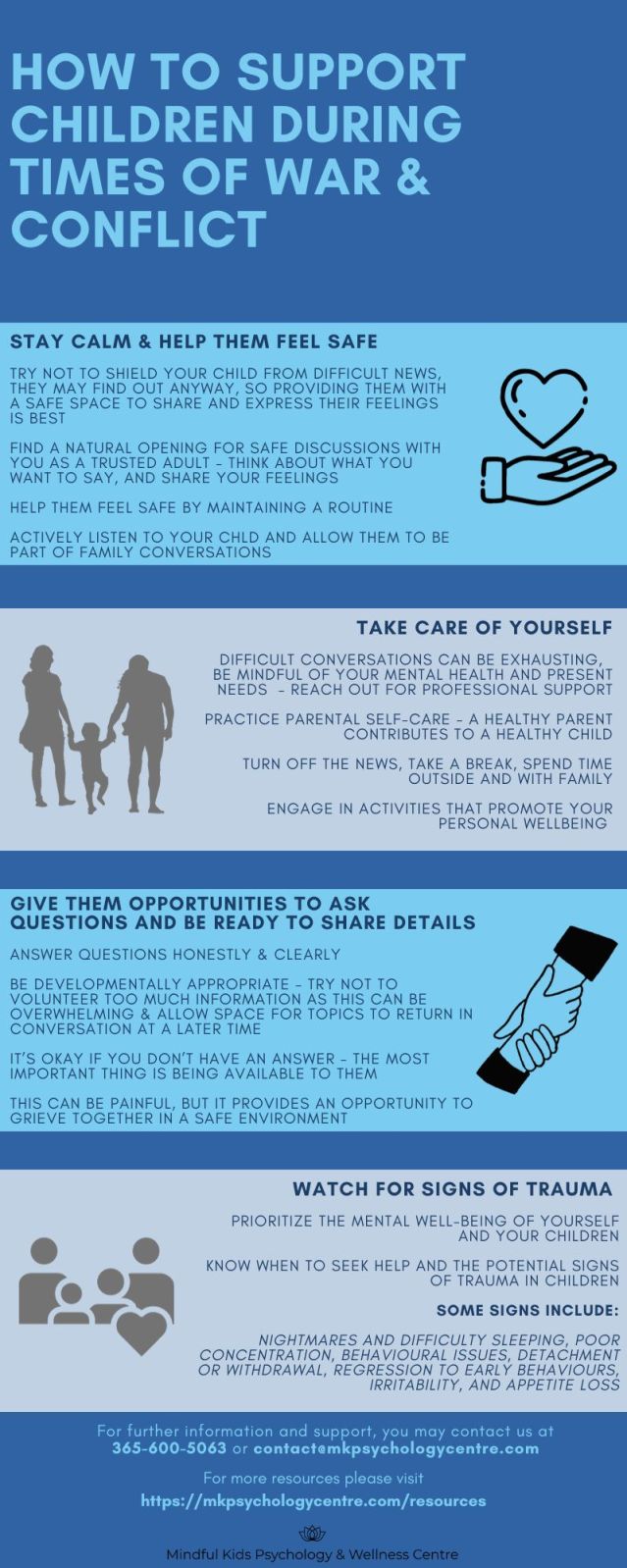Parenting
How to Support Children During Times of War and Conflict
Strategies to support difficult conversations.
Posted October 13, 2023 Reviewed by Ray Parker
Key points
- It is important to talk to children about difficult topics, such as tragedies and natural disasters.
- Parents can share their feelings honestly and openly.
- Listen to a child's feelings and validate their experiences.

Mahatma Gandhi said, “If we are to teach real peace in this world, and if we are to carry on a real war against war, we shall have to begin with the children.”
Education and discussion of hard topics play an important role in children’s development and understanding of the world, ultimately paving our path toward peace. At the same time, it is tempting, or rather desirable, to shield children from these topics.
Yet, we live in a world where news travels faster and more widely than ever, suggesting that our children may learn elsewhere if we don’t have these tough conversations with them ourselves. Scary events, such as tragedies, natural disasters, or acts of racism, bias, or anti-Semitism, can happen to all of us. Below are some ways to guide these tough conversations.
Share feelings. Sharing your feelings about the situation while actively listening to your child is vital. As a parent, it is helpful to acknowledge your feelings and for them to see that it is normal to experience these difficult emotions.
This is also an opportunity for parents to model how we cope with difficult feelings. Validating your child’s feelings, whatever they may be, is important. There is no right or wrong way to feel. However, this exploration may also reveal some confusion or misunderstanding about what may be happening, presenting opportunities to explore the situation from a developmentally appropriate perspective.
Carve out a good time and place to talk. A developmentally appropriate perspective is important when discussing what may happen. This may mean we emphasize safety and age-appropriate tips for staying safe with younger children if needed. This also means we provide opportunities to explore and answer questions honestly and clearly.
What happens if we don’t have all the answers? We don’t have to have all the answers because we are there to help validate the child while reassuring them that we are doing everything possible to help them stay safe. Limiting access to social media may be a helpful way to ensure that a child obtains accurate information. It also allows families to explore things at their own pace.
Model calm and practice self-care. During challenging times, things can feel overwhelming and heavy. We all need to take time to turn off the news, unplug, and take a break. Spending time together outdoors and engaging in activities that promote our well-being can be a helpful way for us all to find a calm space for ourselves and to respond calmly to our children.
Reading books can be a helpful way to explore these hard topics further. Magination Press has numerous books on various topics, including grief, trauma, and war.
References



